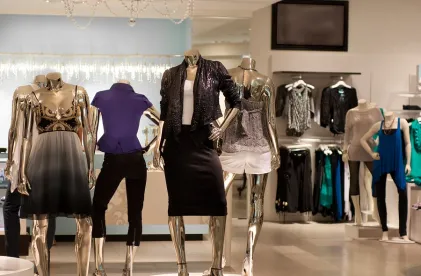Business re-openings, increased hiring, and a fresh batch of stimulus checks have driven a recovery in retail sales during the first half of 2021. However, the collective sigh of relief that many retailers (and their landlords and lenders) are breathing is not being shared by all. The recovery is not benefitting every retailer evenly, and some may never recover their pre-pandemic sales as COVID-19 has accelerated trends towards e-commerce and away from larger brick and mortar locations. Many commercial tenants who were unable to secure rent forgiveness from their landlords still owe rent from April and May 2020, when nearly half of commercial retail rents went unpaid. As struggling retailers weigh their options, some recent cases involving The Gap, Inc. offer insight into how courts may treat attempts by commercial tenants to break their leases using COVID-19 as justification.
On March 8, 2021 in The Gap, Inc. v. Ponte Gadea New York LLC, the U.S. District Court in the Southern District of New York granted summary judgment for The Gap’s landlord, holding that COVID-19 does not exempt The Gap from its lease obligations. The Gap argued that its closure of two stores operating at the corner of 59th Street and Lexington Avenue in Manhattan, which followed a series of pandemic-related governmental restrictions and decreased foot traffic in the vicinity of the stores, warranted its release from the obligations of its lease. The court rejected each of The Gap’s arguments, which included theories based on the lease’s casualty provision, frustration of purpose, impossibility, failure of consideration, and mutual mistake, reasoning that The Gap had been able to continue offering limited in-store shopping, curbside pickup, and online order fulfillment. On the issue of impossibility, the court noted that increased financial burden, even to the extent of insolvency or bankruptcy, does not implicate the impossibility doctrine under New York law.
On June 3, 2021 in The Gap, Inc. v. 170 Broadway Retail Owner, LLC, a New York state appellate panel cast doubts on The Gap’s ability to terminate its lease based on the impossibility doctrine. While the four-judge panel heard an appeal from the landlord, The Gap argued that COVID-19 had made it impossible to meet the retail standard clause in its lease, which required it to “operate a store equivalent in quality to and generally consistent with a majority of tenants of the retail stores located in New York City.” The Gap asserted that mandatory health safeguards, such as the installation of plexiglass dividers, had made it impossible to perform as a quality retailer. However, the judges appeared inclined to reject The Gap’s argument that it was unable to provide the service the retail standard clause demanded due the impact of COVID-19. When the landlord argued that retail standard clauses are actually designed to protect landlords, the judges responded with a steady stream of nods.
While these two cases are not dispositive, they shed some light on how courts may treat commercial tenants who attempt to break their leases using the pandemic as an excuse without clear lease language giving them the right to do so. Landlords and tenants looking to clarify the effect a future pandemic will have on their lease agreements should address the issue in both the Force Majeure and Casualty provisions to avoid unintended interpretations.




 />i
/>i

